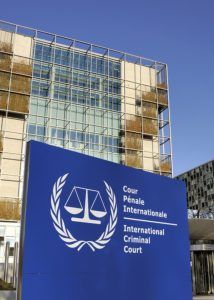Kenneth Roth and Salil Shetty in Foreign Policy in Focus:
 Four years ago, Human Rights Watch and Amnesty International—joining hundreds of others—urged the United Nations Security Council to send atrocity crimes committed in Syria to the International Criminal Court (ICC) for prosecution. Then, the conflict had already claimed 100,000 lives, overwhelmingly civilians. Today, the death toll is estimated at over half a million, with each day bringing new violations and unlawful killings.
Four years ago, Human Rights Watch and Amnesty International—joining hundreds of others—urged the United Nations Security Council to send atrocity crimes committed in Syria to the International Criminal Court (ICC) for prosecution. Then, the conflict had already claimed 100,000 lives, overwhelmingly civilians. Today, the death toll is estimated at over half a million, with each day bringing new violations and unlawful killings.
Yet the ICC has been unable to act. Russia’s veto at the Security Council continues to block a path to justice for Syria’s victims. Other council members, including the United States, have also used or threatened to use their veto to block action on other atrocity crimes.
This sad situation is a far cry from the summer of 1998, when many governments with the support of nongovernmental organizations came together in Rome to create the ICC. Many of the major powers including the US opposed the effort, but smaller and medium-sized governments seized what turned out to be a fleeting moment. With a post-cold war faith in multilateralism and a resolve driven by genocide in Rwanda and the former Yugoslavia, these governments acted on longstanding but unrealized ambitions for a permanent, global criminal court. The Rome Statute, the court’s founding document, was adopted on July 17, 1998, and the court was set up four years later.
More here.
